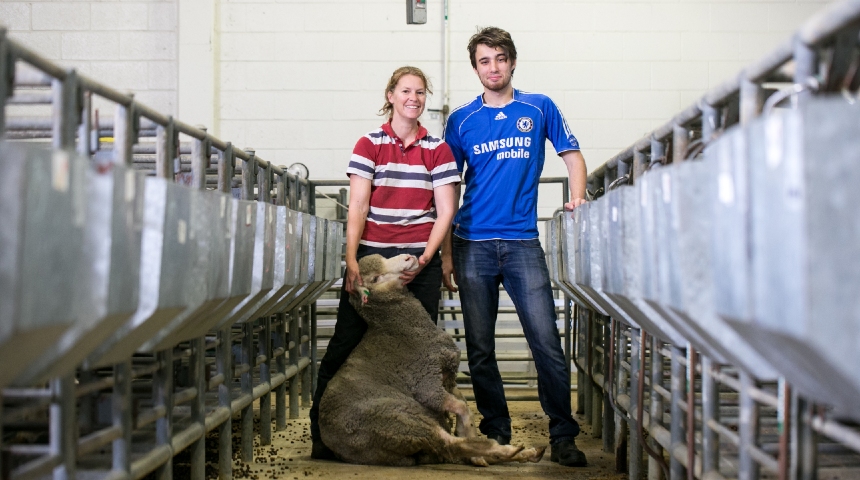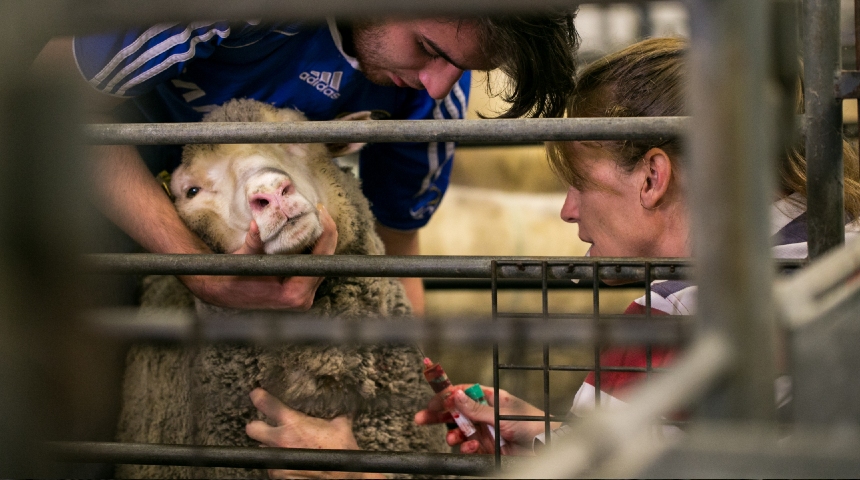
A Murdoch-led team has brought together animal researchers, producers and industry associates from across Australia to discuss the changing face of animal science.
The Australian Association of Animal Sciences (AAAS) Biennial Conference was led by Dr Fiona Anderson, Lecturer in Physiology and member of the Centre for Animal Production and Health, and Sarah Blumer, Research Officer in the College of Science, Health, Engineering and Education and President of the WA branch of AAAS.
They oversaw a program that explored reproduction, genetics, meat science, animal health, welfare, nutrition, metabolism and emerging technology across sheep, cattle, pigs and poultry.
“There was strong university representation with over a dozen Murdoch researchers delivering oral presentations and others also presenting posters from the production animal research sector of the University,” said Dr Anderson.
“It was fantastic seeing the breadth and depth of the research presented and also being able to deliver a comprehensive scientific program that was interactive while being online.”

Image caption: Sarah Blumer conducting research in sheep yards, prior to covid-19.
The team faced late logistical challenges as Western Australia went into a snap lockdown a day before the event, in response to a locally acquired covid-19 infection.
As the conference was rescheduled from last year, the team had already “covid-proofed” it by asking all presenters to submit pre-recorded presentations and e-posters so the team could be flexible in their ability to deliver under any circumstances.
“The great thing about this conference was that we were able to deliver a comprehensive scientific program that was interactive while being online,” said Dr Anderson.
“It also provided the platform for a fantastic showcase of student research through a one-minute video competition, where students and early career researchers had a minute to tell their research story.”
The theme of the conference, the changing face of animal science, reflected the broadening scope of animal science research, which also came through in the video competition topics.
The runner up in the student video competition was Steve Connaughton on using DEXA technology to determine lamb carcass composition. The winner was Rebecca May’s presentation on developing a new methodology to measure whole-body energy in sheep.
Watch Rebecca May's video:
The early career researcher winner was former Murdoch student Hayley Hardwick, while Steve Connaughton also took out the People’s Choice Award.
Watch Steve Connaughton's video:
Dr Anderson reiterated the importance of continuing to engage in conferences with other scientists and industry partners and sharing research in those settings.
“Without the ability to travel and meet in person it is important to remain contemporary and continue to learn from others and also share our own research to meet potential research collaborators to continue to output high quality research,” said Dr Anderson.
The research presented was further proof of Murdoch’s leading food research, validating the comments of Dr Craig Heggaton, Chairman of the Western Australian Meat Marketing Co-operative, in the House of Representatives in Canberra last year.
“Murdoch University in Western Australia is probably the world leader in red meat research,” Dr Heggaton said.
“Guys like Dave Pethick and Graham Gardner at Murdoch University are probably the two most-renowned red meat scientists in the world.
“We're leading the charge over here, from an R&D point of view.”
This research supports the United Nations Sustainable Development Goal 2 and 15.
For research news delivered to your inbox, sign up to our monthly newsletter.